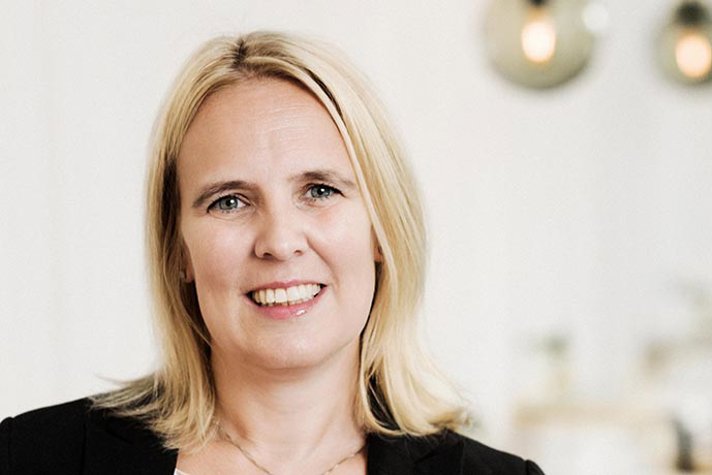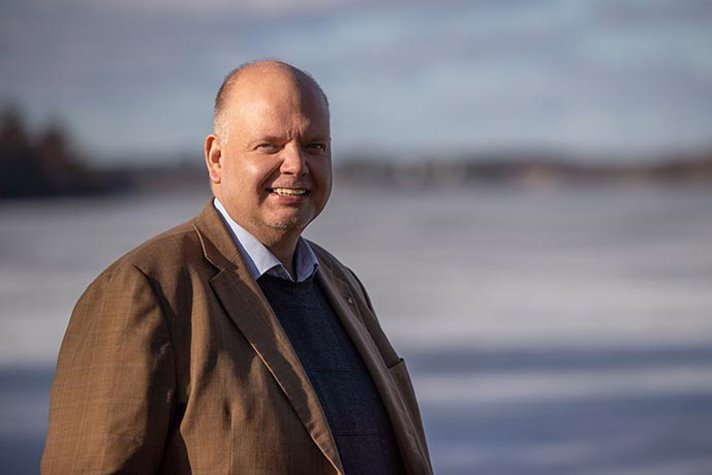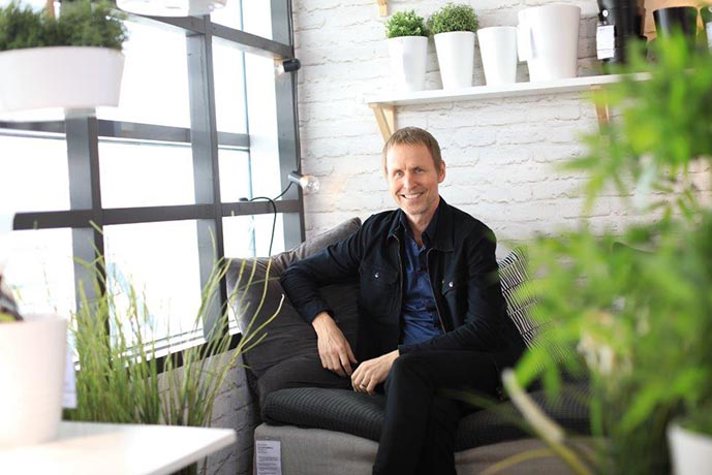Impact of the innovation partnership programme Climate neutral industry
Published
Work within the partnership groups in the four innovation partnership programmes has been well underway since they were first launched in June 2019. Viveca Bergstrand is the Project Manager for the innovation partnership programme Climate neutral industry, and she already sees positive results emerging from the work of the partnership group.
Since the partnership group was set up in February this year, it has held four joint meetings in which members identified the areas they wanted to focus on in particular and prioritise.
“Based on the prioritised areas, nine working groups, all with a spokesperson from among the members, are now focusing on creating a workshop under the remit of the innovation partnership programme. Between the partnership group meetings, the working groups have been working at a feverish pace during the autumn; they didn’t actually start their work in practice until August,” explains Viveca Bergstrand.
The innovation partnership programmes help boost collaboration across traditional sector and industry boundaries, and contribute to the coordination of national innovation efforts and concerted action within specific thematic societal challenges. Minister for Business, Industry and Innovation, Ibrahim Baylan, is the minister responsible, and has a special remit as coordinator of the innovation partnership programme. He is monitoring the work closely. In his dialogue with the partnership groups and their members, he has explained that they have a mandate to challenge accepted truths in order to jointly come up with and implement new ideas in response to societal challenges, to equip Sweden for the future and bolster our competitiveness.
“For me as the minister responsible it’s very gratifying to know that there will soon be some concrete results from the innovation partnership programme. The coronavirus pandemic has sped up structural changes that were already underway in society, and we now have an opportunity to incorporate the essential climate transition into our recovery,” comments Minister for Business, Industry and Innovation, Ibrahim Baylan.
Nine working groups
The programme’s nine working groups are all discussing proposals for joint initiatives that contribute to the focus of the programme: the 2045 target via the export of sustainable innovations. The work is being carried out in cooperation with relevant agencies and organisations identified by the groups.
The members have also contributed their input to some important and central processes that affect climate neutral industry in Sweden, for example to the inquiry A modern and effective environmental assessment (dir 2020:86).
Some examples from the working groups from autumn 2020
Cecilia Tall, Secretary-General, TEKO

Member Cecilia Tall is the spokesperson for the Design for circularity working group, which compiled and submitted a response in autumn 2020 to the EU Commission’s consultation on the Sustainable Products Initiative:
“We’ve been working on a submission to the consultation on the Sustainable Products Initiative for a while now. It’s going to be extremely important to have circular design principles as a reference now as we shape future legislation and shift towards new, more sustainable products, and to promote and support those companies that are leading developments towards a fossil-free society. We have particularly emphasised the importance of doing the right thing from the outset, either by extending the lifespan of products or by making materials last longer,” says Cecilia Tall.

Member Pär Larshans, Ragn-Sells, is the spokesperson for the Material flows working group.
‘Klimatkonventionen’ is the most commonly used Swedish name for the United Nations Framework Convention on Climate Change, (UNFCCC). This is an international agreement that is legally binding on those countries that have ratified it. Pär Larshans is one of 16 people who represented the global business sector (two companies from Sweden: Ragn-Sells + Ericsson) in discussions with the UNFCCC and the COP26 presidency at the beginning of December.
So how did the meeting go?
“It was an open dialogue that highlighted the importance of a green recovery after Covid-19. Unlike previous UN meetings I’ve participated in, the discussion focused on the importance of cooperation, which is something I haven’t heard before,” says Pär Larshans.
“Sweden, and what is happening in Sweden was also singled out as a good example by several of the speakers; Swedish Head of Delegation to UNFCCC, Mattias Frumerie, drew attention to the 22 Fossil Free Sweden roadmaps, while the representative from the global union highlighted HYBRIT as a good example. And I then had the opportunity to give a brief talk in which I stressed the importance of the role of the innovation partnership programme,” says Per Larshans.
“The focus of the innovation partnership programme is to increase Sweden’s positive contribution to the world’s greatest challenge, the climate crisis, and to lead the way in exporting solutions or products/materials that are climate-smart and therefore able to have a far more powerful positive climate effect. During the first year we’ve become more cohesive as a group, and we’re now adding more specific partnerships to the various working groups to give those who want it an opportunity to step things up a gear. Identified obstacles can be quickly raised at a political level to be dealt with; this produces clearer prioritisation of what is important and we’ve already been able to launch new collaborations,” explains Pär Larshans.
Jonas Carlehed, Ikea

Jonas Carlehed, member of the partnership group, is involved in the Definitions and measurability working group. As part of their work, the group has identified a number of areas where existing initiatives can be reinforced and taken to the next level. One example is the Climate Positive concept. A group of companies has been working with WWF to take the initial steps in developing a framework that aims to bring together brands looking to adopt a credible, scientific and globally accepted way of being recognised as a climate-positive company. Within the remit of the partnership group, they are now looking to also include disruptive, innovative and fast-growing companies.
“A smaller working group within the innovation partnership programme has met with WWF and discussed ways in which the Climate Positive concept can encompass innovative and fast-growing companies that are transforming their industries. This is one of the last remaining challenges to solve within Climate Positive, as the concept’s ambitious principle is an absolute reduction in emissions, irrespective of growth. WWF has now endorsed the working group’s input and we’re looking forward to continued discussions,” explains Jonas Carlehed.
“The innovation partnership programme has helped drive the need for consistent definitions and standards within climate work,” he adds. “The smaller working group has examined the Climate Positive concept in more detail and owing to their varied skills is able to contribute new perspectives.”
The Government’s innovation partnership programmes
The objective of the Government’s innovation partnership programmes is to identify innovative solutions to major challenges facing society and to contribute to Sweden’s competitiveness. The themes are based on Sweden’s strengths and on the 2030 Agenda for Sustainable Development:
- Climate neutral industry
- Skills supply and lifelong learning
- Digital transformation of industry
- Health and life sciences

 X
X